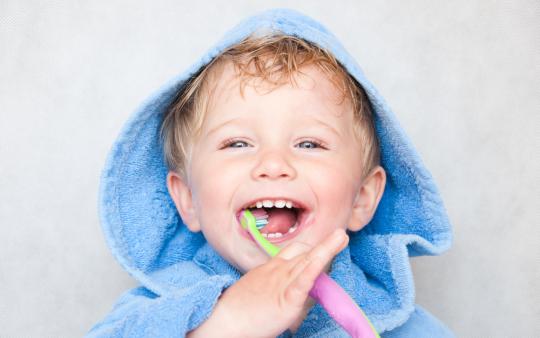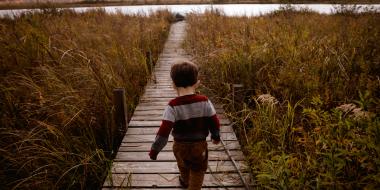There are many different views and opinions when it comes to your child's dental health. When do you start brushing? How many times a day? When should you take them in for their first dental visit? Who do you see? We have certainly had the same concerns with our own children so we asked Chantal Pannell, a dental hygienist who owns her own practice, about her tips for children's dental care.
When should parents start brushing their children’s teeth?
It is recommended to start brushing as early as possible. It is important to get your child used to dental care and more importantly comfortable with you helping them. I recommend wiping the baby’s gums with a clean, soft washcloth after every breastfeeding or bottle. Once the first tooth arrives, you can switch to an infant size brush and gently brush the tooth with water only.
How often should parents be cleaning their little one’s teeth?
Creating a routine is extremely crucial from a young age. It is recommended that they brush 2 times a day, morning and night. The nighttime brushing is most important as the mouth is at rest and typically dryer which gives bacteria the opportunity to flourish and multiply.
Does a child need to see a dentist or can they see a hygienist?
A child can see a dental hygienist for their first visit because a dental hygienist is the primary educator on oral hygiene. Registered Dental Hygienists working in traditional dental offices or independently work closely with dentists to ensure a healthy smile. However, not everyone can access dental care through a traditional dental office. For this reason, the Canadian government passed legislation in 2007 allowing the public to receive care from a dental hygienist. The fee guide is traditionally 30% less than a dentist. There are also several programs offered to children under the age of 17 through Health Units in every community throughout Ontario. This program is based on the family’s income.
Are there things that we should avoid giving to our children that may cause harm to their teeth?
Try to avoid sticky foods such as raisins or fruit roll-ups, especially in lunches at school if they do not have the opportunity to brush after. Healthier choices such as apples and cheese tend to help cleanse the teeth between cleanings. Avoid any juice that is not 100% pure juice. Any juice container with the words “drink” or “juice beverage” will have a higher content of sugar. If your child drinks juice, try to dilute the pure juice with water and offer it at meal times to ensure the saliva can help cleanse the teeth.
When should parents start letting their children brush their own teeth?
Parents should always supervise and encourage their children to brush on their own first. Once they have finished brushing, it is recommended that the parent go over the areas to ensure a proper brushing is done. Every child is different and may need help with their dexterity. By observing their child’s brushing, parents can decide when their child can brush independently.
What are some of the signs of unhealthy teeth or teeth that may need care sooner rather than later?
Discolored brown/black spots on the teeth are signs of unhealthy teeth. Furthermore, children's teeth often suffer trauma from a fall or collision with objects. Look for abnormal signs like greyish discoloration and check their gums for any redness or blister like abscesses. If you suspect your child is showing signs of unhealthy teeth or gums, be sure to see your dental professional as soon as possible.
A few extra tips from Chantal
It is recommended to get kids brushing for a length of 2 min, 2 times a day in a circular motion reaching the gums. Parents can implement a brushing routine with a favorite song or timer. This will create a healthy habit for your child’s brushing regime.
Cleaning between your child’s teeth is as important as brushing. Using a floss pick between your child’s teeth once a day will get them used to flossing regularly. This is an important part of their daily care to help prevent decay between the teeth as well as reduce the amount of debris and inflammation. Also, once your child is able to spit, you may apply a small (pea size) amount of toothpaste to help reduce the chance of decay.
Chantal has been practicing as a dental hygienist for 19 years and has worked abroad in Switzerland as well as several offices in Ontario before opening her own clinic in 2011. Having her own clinic allows her the time to personalize her client’s needs and give back to her community!
*Originally published June 27, 2016






